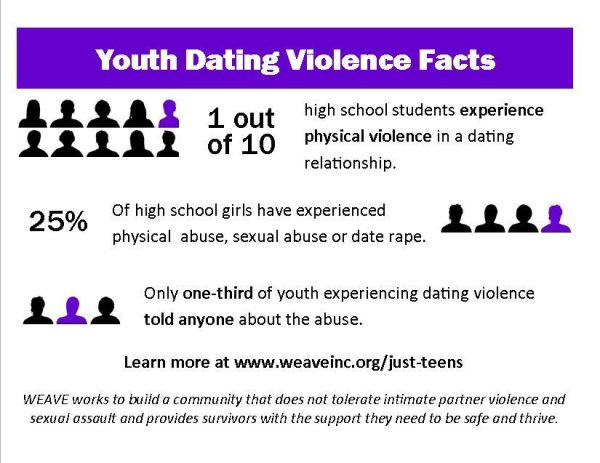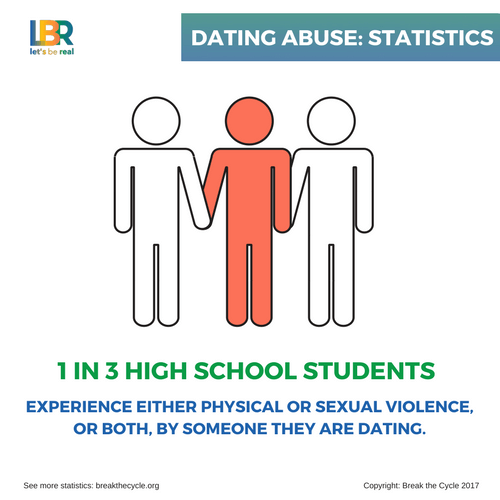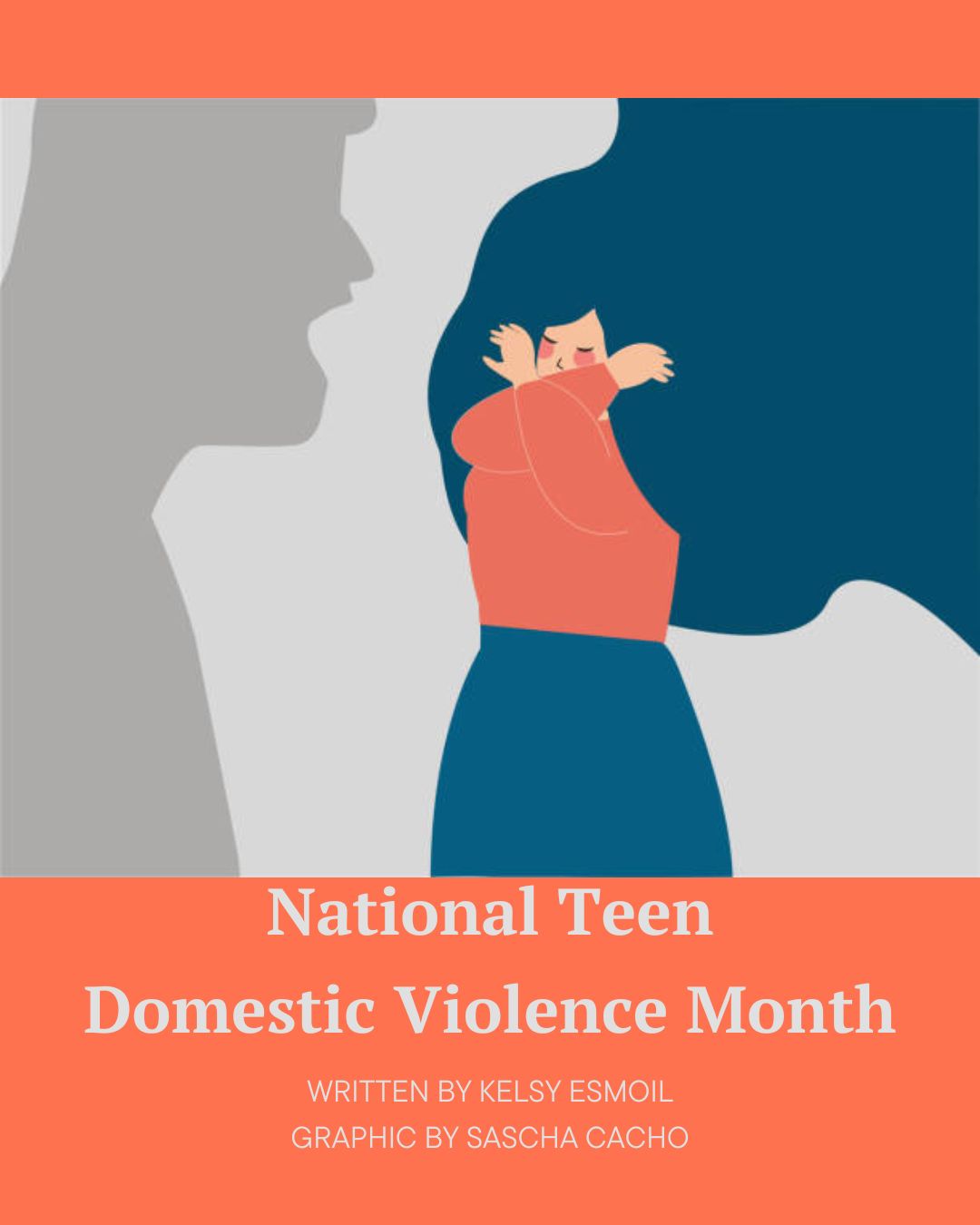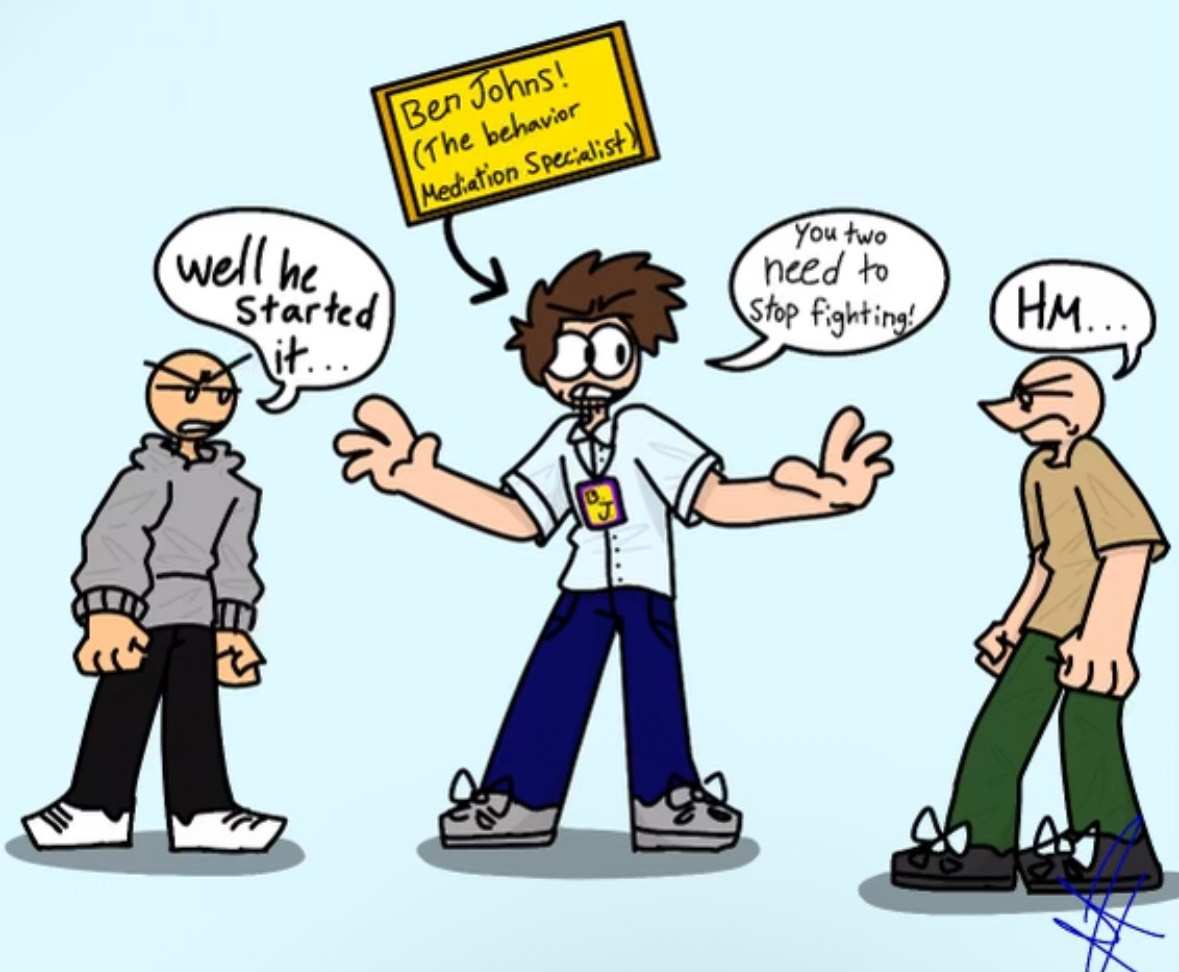Domestic Violence is a touchy subject that is hard to talk about. It’s even harder to talk about as a high school journalist when it is brought forward as a topic of discussion.
Some teenagers start their dating history in high school and meet their high school sweethearts. Everything romantic from walking together to classes, going to the movies on Fridays, and finally, meeting the parents. You become comfortable and start to spend everyday with each other, revolving your world and schedule around them. Then all of a sudden they become distant and you become “too clingy.” Some of their actions start not making sense to you, and in some cases this is where teen domestic violence beings.

“They treat you so bad. You need to leave,” is always your best friend’s go-to line. Teen domestic violence can be seen in numerous ways such as: physical, verbal, or mental. Yes, you know what’s occurring in the relationship is unhealthy, but it’s not easy to leave the relationship.
According to Domestic Violence Services, Inc., 1 in 3 girls in the US are a victim of physical, emotional, or verbal abuse from a dating partner as well as other statistics finding that only 33% of people in DV relationships will ever report it.

The impact that DV has on adults is a struggle as it is, but it comes to a more sensitive spot as an adolescent. You’re worried about your GPA, college, job, the ACT, and an abusive relationship, all before you even graduate.
Something no one talks about is the period when you know you need to leave, but don’t know how. For many, this is very draining, leaving tears on your pillow from night to night, and losing faith in your future. According to Teen Violence CDC, post-breakup is when teens have an increase in antisocial behaviors, experience depression and anxiety, engage in tobacco smoking and alcohol abuse, and contemplate suicide.
Learning how to have respect for yourself is one of the most vital skills that youth lack. This explains why they are so vulnerable to another person’s perspective of them. When you become so infatuated with the idea of someone, you forget who you are, what you like doing, and what you were doing in your life before it became all about them. It’s easy to not communicate and shut others out because they don’t fully understand your emotional distress. So, whether it’s your best friend or your parent, it’s important to know who your “support team” is to keep this under control.
Although it’s not always guaranteed, there are some tools that parents can utilize to help prevent their child from suffering through TDV (Teen Domestic Violence). Some things can be seen as “taboo”, but in reality help teach them about healthy relationships and signs of unhealthy characteristics in relationships. Even just in the home, it’s important to have open conversation with your child about understanding warning signs, setting boundaries, communication, and being assertive.
If you or someone know suffers from TDV, there are many services available to get the help they need and deserve that are designed to support youth victims of domestic violence.
The National Dating Abuse Hotline
Call: 1-866-331-9474







